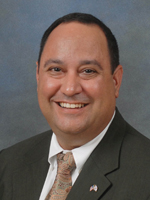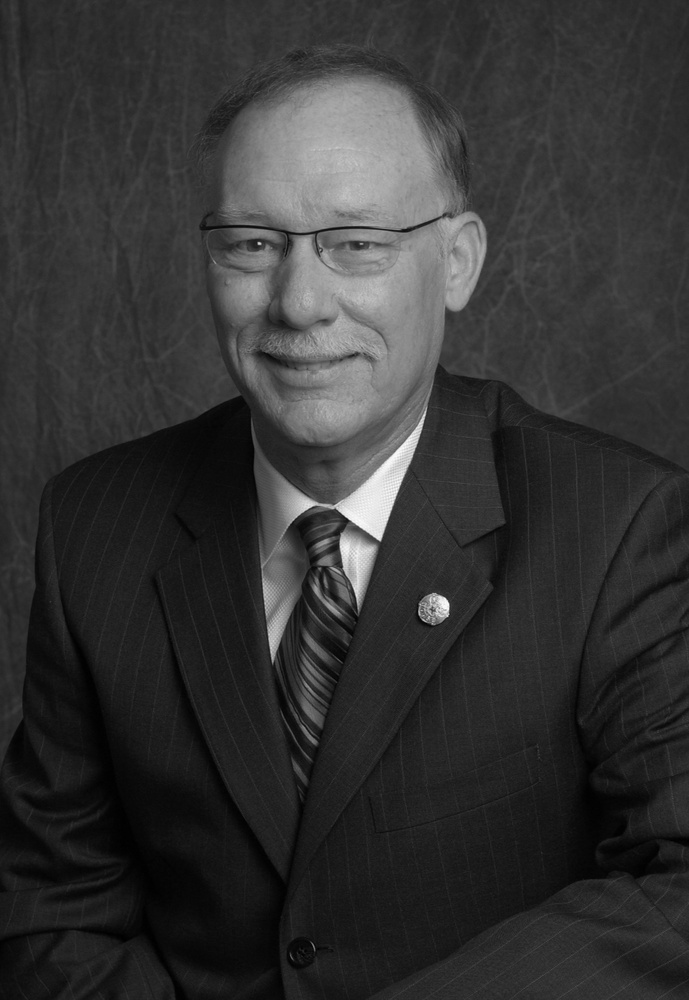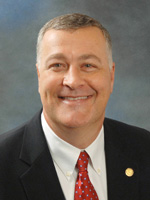The American Legislative Exchange Council’s (ALEC) model bill for disclosure of chemicals injected into the ground during the controversial hydraulic fracturing (“fracking”) process is back for a sequel in the Sunshine State legislature.
ALEC‘s model bill was proposed by ExxonMobil at its December 2011 meeting and is modeled after a bill that passed in Texas’ legislature in spring 2011, as revealed in an April 2012 New York Times investigative piece. ALEC critics refer to the pro-business organization as a “corporate bill mill” lending corporate lobbyists a “voice and a vote” on model legislation often becoming state law.
The bill currently up for debate at the subcommittee level in the Florida House of Representatives was originally proposed a year ago (as HB 743) in February 2013 and passed in a 92-19 vote, but never received a Senate vote. This time around the block (like last time except for the bill number), Florida’s proposed legislation is titled the Fracturing Chemical Usage Disclosure Act (HB 71), introduced by Republican Rep. Ray Rodrigues. It is attached to a key companion bill: Public Records/Fracturing Chemical Usage Disclosure Act (HB 157).
HB 71 passed on a party-line 8-4 vote in the Florida House’s Agriculture and Environment Subcommittee on January 14, as did HB 157. The next hurdle the bills have to clear: HB 71 awaits a hearing in the Agriculture and Environment Appropriations Subcommittee and HB 157 awaits one in the Government Operations Subcommittee.
Taken together, the two bills are clones of ALEC‘s ExxonMobil-endorsed Disclosure of Hydraulic Fracturing Fluid Composition Act. That model — like HB 71 — creates a centralized database for fracking chemical fluid disclosure. There’s a kicker, though. Actually, two.
First kicker: the industry-created and industry-owned disclosure database itself — FracFocus — has been deemed a failure by multiple legislators and by an April 2013 Harvard University Law School study. Second kicker: ALEC‘s model bill, like HB 157, has a trade secrets exemption for chemicals deemed proprietary.
First “Halliburton Loophole,” then “ExxonMobil Loophole”
Back when the ALEC model bill was debated in the Texas legislature in spring 2011 (and before it was endorsed by ExxonMobil and eventually adopted as a model by ALEC), the bill was touted as an antidote to the lack of transparency provided at the federal level on fracking chemicals by both industry and environmental groups, such as the Environmental Defense Fund and the Texas League of Conservation Voters (LCV).
“[T]his is proof positive that the public, environmental groups, and the state’s energy industry can work together to ensure the health and safety of Texans,” the Texas LCV said in May 2011.
Rep. Rodrigues said he was impressed by these dynamics when researching the bill online in comments provided by email to DeSmogBlog.
“I was pleased to see the Environmental community and the Energy community jointly draft this legislation,” he said.
FL Rep. Ray Rodrigues (R); Photo Credit: Florida House of Representatives
The lack of federal level transparency is mandated by law via the Energy Policy Act of 2005, as outlined in a sub-section of the bill best known as the “Halliburton Loophole.”
The “Halliburton Loophole” — named such because Halliburton is an oil services company that provides fracking services and because when it was written, the company’s former CEO, Dick Cheney, was vice president of the United States and oversaw the industry-friendly Energy Task Force — gives the oil and gas industry a free pass on fracking chemical disclosure, deeming the chemicals injected into the ground during the process a trade secret.
Yet, far from an antidote to the “Halliburton Loophole,” a new loophole has been created in its stead at the state level — the “ExxonMobil Loophole” — which now has the backing of ALEC. The results haven’t been pretty.
An August 2012 Bloomberg News investigation revealed FracFocus merely offers the façade of disclosure, or a “fig leaf” of it, as U.S. Rep. Diane DiGette (D-CO) put it in the piece.
“Energy companies failed to list more than two out of every five fracked wells in eight U.S. states from April 11, 2011, when FracFocus began operating, through the end of last year,” wrote Bloomberg. “The gaps reveal shortcomings in the voluntary approach to transparency on the site.”
As we reported on DeSmogBlog in December 2012, FracFocus is a public relations front for the oil and gas industry:
FracFocus’ domain is registered by Brothers & Company, a public relations firm whose clients include America’s Natural Gas Alliance, Chesapeake Energy, and American Clean Skies Foundation, a front group for Chesapeake Energy.
FracFocus was listed as an industry “ally” in the recently revealed scandalous Ohio Department of Natural Resources memo from 2012 — now part of an Ohio House of Representatives investigation — which discussed how to push through fracking on public lands and divide Ohio’s environmental community. It also received an initial $1.5 million in seed money in the aftermath the meetings between members of the industry-stacked 2011 Obama Administration Department of Energy Fracking Subcommittee.
Perhaps it shouldn’t be shocking, then, that one of the bill’s original co-introducers, Texas Rep. Lon Burnam (D), told Bloomberg, “This disclosure bill has a hole big enough to drive a Mack truck through.”
Texas’ track record on fracking chemical fluid disclosure speaks for itself.
“Drilling companies in Texas, the biggest oil-and-natural gas producing state, claimed similar exemptions about 19,000 times this year through August,” explained Bloomberg. “Trade-secret exemptions block information on more than five ingredients for every well in Texas, undermining the statute’s purpose of informing people about chemicals that are hauled through their communities and injected thousands of feet beneath their homes and farms.”
Or, as the Harvard University Law School study put it:
FracFocus prevents states from enforcing timely disclosure requirements, creates obstacles for compliance for reporting companies, and allows inconsistent trade secret assertions. Furthermore, the reliance on FracFocus by numerous states as a de facto regulatory mechanism sends a strong signal to industry that careful reporting and compliance is not a top priority.
Asked why HB 157 was introduced as a companion to HB 71 to begin with, Rep. Rodrigues cited the “Halliburton Loophole.”
“HB 157 was introduced because there are existing exemptions for trade secrets in both state and federal statutes,” he said. “Therefore HB 71 must be made compliant with existing law. Otherwise, HB 71 could be challenged in court and thus not enforced.”
ALEC Legislator Ties to Florida Bills
At the January 14 Agriculture and Environment Subcommittee hearing in which HB 71 and HB 157 passed, Rep. Ray Rodrigues told his Subcommittee colleagues he got the idea for the proposed pieces of legislation from Texas Rep. James “Jim” Keffer (R).
“I contacted the Texas state representative who filed the bill, Jim Keffer, and asked him to send me that bill, which he did,” said Rodrigues at the hearing (begins at 9:57). “That bill was the foundation of which was submitted last year.”
TX Rep. James “Jim” Keffer (R); Photo Credit: Texas Tribune
At the time he co-introduced the bill in 2011, Keffer was an ALEC member, according to SourceWatch.
Two of the Agriculture and Environment Subcommittee members who up-voted HB 71 and HB 157 — Rep. Ray Pilon (R) and Rep. Matt Caldwell (R) — have ALEC ties. Further, three members of the Agriculture and Environment Appropriations Subcommittee — Pilon, Rep. Ben Albritton and Rep. Debbie Mayfield — which is the next destination for HB 71, also have ALEC ties.
For HB 157, two members of the Florida House Government Operations Subcommittee have ALEC ties: Rep. Clay Ingram and Rep. Larry Ahern. Were both bills to advance to the House State Affairs Committee, three members of that committee have ties to ALEC, too: Albritton, Caldwell and Rep. Jason Brodeur.
Will the Bills Pass?
After contacting multiple sources in Florida, it appears far from a sure bet that the two bills will advance out of the current subcommittees.
Kevin Cleary, spokesman for Rep. Albritton, chair of the Florida House Agriculture and Environment Appropriations Subcommittee, told DeSmogBlog Rep. Albritton has no intention to bring HB 71 to a committee vote for now.
FL Rep. Ben Albritton (R); Photo Credit: Florida House of Representatives
A member of the Florida environmental community, who requested anonymity due to the speculative nature of his analysis, said he expects the bills to be tabled for the year, especially since elections loom in November.
“Since this is an election year, leadership may be considering whether to put their members in the position of having to vote for an unpopular bill when it’s not likely to pass,” said the source. “If that’s the case, they might have sent word down the line to let them die quietly. But we’re not relaxing, and won’t until the bill is dead.”
Photo Credit: Wikimedia Commons
Subscribe to our newsletter
Stay up to date with DeSmog news and alerts









